Dr Sally Reynolds writes for The Conversation about new research into the structure of dinosaur bones…
Bones like Aero chocolate: the evolution adaptation that helped dinosaurs to fly

AmeliAU/Shutterstock
Sally Christine Reynolds, Bournemouth University
It’s sometimes difficult to imagine how the planet we call home, with its megalopolis cities and serene farmlands, was once dominated by dinosaurs as big as buses and five-storey buildings. But recent research has helped deepen our understanding of why dinosaurs prevailed: the answer may lie in their special bones, structured like Aero chocolate.
Brazilian palaeontologist Tito Aureliano found that hollow bones filled with little air sacs were so important to dinosaur survival, they evolved independently several times in different lineages.
According to the study, aerated bones evolved in three separate lineages: pterosaurs, technically flying reptiles, and two dinosaur lineages theropods (ranging from the crow-sized Microraptor to the huge Tyrannosaurus rex) and sauropodomorphs (long-necked herbivores including Brachiosaurus). The researchers focused on the late Triassic period, roughly 233 million years ago, in south Brazil.

Kev Gregory/Shutterstock
Every time an animal reproduces, evolution throws up random variants in genetic code. Some of these variants are passed on to offspring and develop over time.
Charles Darwin believed evolution created “endless forms most beautiful”. But some adaptations emerge spontaneously time and time again, a bit like getting the same hand of cards on multiple occasions. When the same hand keeps cropping up, it’s a sign that evolution has hit upon an important and effective solution.
The variant the Brazilian team studied was aerated vertebrae bones, which would have enhanced the dinosaurs’ strength and reduced their body weight.
Light but mighty
Your regular deliveries from Amazon or other online retailers come packed in corrugated cardboard, which has the same advantages as aerated bones. It is light, yet tough.
Corrugated cardboard or as it was first known, pleated paper, was a man-made design experiment that was hugely successful and is now part of our everyday lives. It was patented in England in 1856 and was initially designed to support top hats which were popular in Victorian England and the US at the time.
Three years later, Darwin published his On the Origin of Species which outlined how evolutionary traits that create advantages are more likely to be passed on to future generations than variants which don’t.

Shawn Hempel/Shutterstock
CT scan technology allowed Aureliano and his colleagues to peer inside the rock-hard fossils they studied. Without the modern technology, it would have been impossible to look inside the fossils and detect the air sacs in the spinal columns.
The study found no common ancestor had this trait. All three groups must have developed air sacs independently, and each time in slightly different ways.
The air sacs probably enhanced oxygen levels in the dinosaurs’ blood. The Triassic period had a scorching hot and dry climate. So more oxygen circulating in the blood would cool dinosaur bodies more efficiently. It would also allow them to mover faster.
The air sacs would have buttressed and reinforced the internal structure of the dinosaurs’ bones while creating a greater surface area of attachments for large, powerful muscles. This would have enabled the bones to grow to a far larger size without weighing the animal down.
In living birds aerated bones reduce overall mass and volume, while enhancing bone strength and stiffness – essential features for flight.
Palaeontology not only tells the story of what might have been for Earth, had it not been for that infamous asteroid, but also helps us learn about the evolution of still living creatures.
Prehistoric connections
Echoes of this dinosaur legacy lie in many animals alive today. It is not only long-dead animals which found this type of adaptation useful. Many bird species living today rely on hollow bones to fly. Others animals use the air sacs to buttress and strengthen their large bones and skulls, without weighing them down.
An excellent example of this is the elephant skull. Inside elephant skulls are large air sacs which allow the animal to move its massive head and heavy tusks without straining the neck muscles.
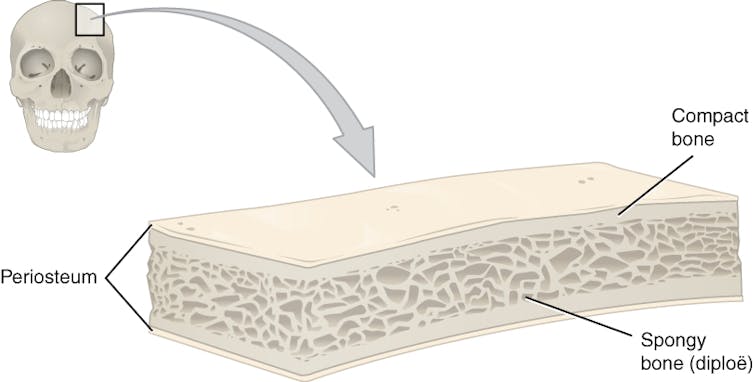
OpenStax College, CC BY
The human brain is also protected by two layers of hard, compact, bone (inner and outer tables) which sandwich a layer of softer, spongey and aerated bone in between, known as the diploe. This allows our skulls to be light, but strong and able to absorb shocks to cranium.
These are examples of convergent evolution in which animals are faced repeatedly with the same problem, evolving similar – but not always identical – solutions each time. Animals today are playing by the same evolutionary playbook as the dinosaurs.![]()
Sally Christine Reynolds, Principal Academic in Hominin Palaeoecology, Bournemouth University
This article is republished from The Conversation under a Creative Commons license. Read the original article.
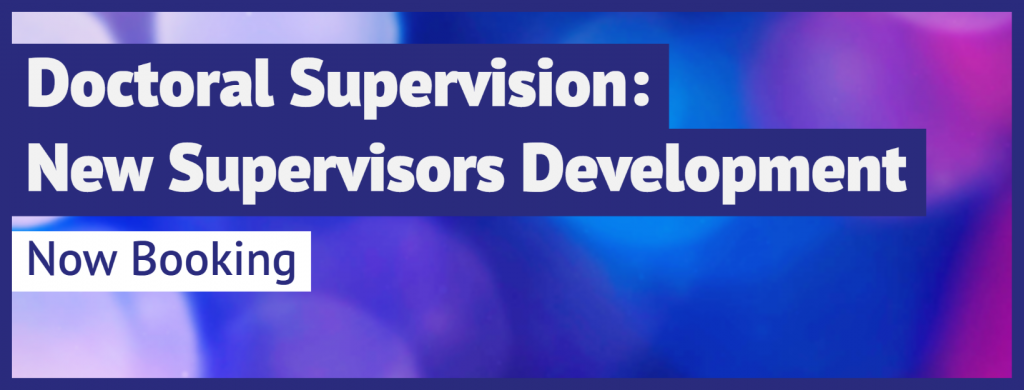

 The FoodMAPP project – being led in the UK by Bournemouth University (BU) – will develop a searchable map-based platform that will enable consumers to search and buy food products directly from local suppliers.
The FoodMAPP project – being led in the UK by Bournemouth University (BU) – will develop a searchable map-based platform that will enable consumers to search and buy food products directly from local suppliers.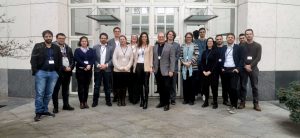
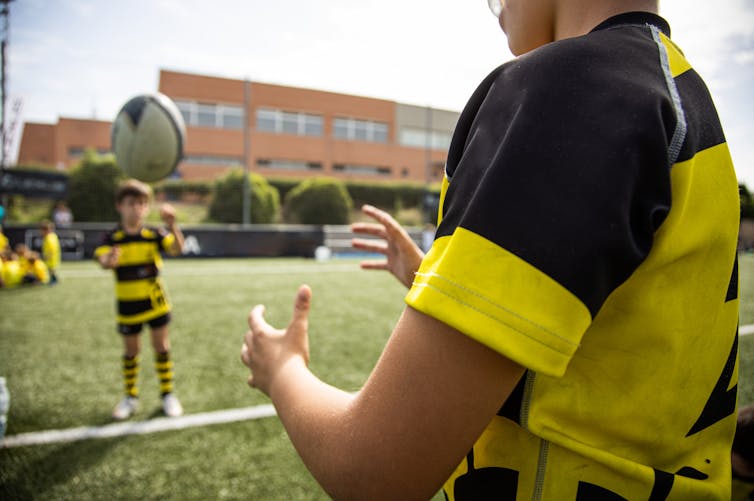



 The next event in our
The next event in our 
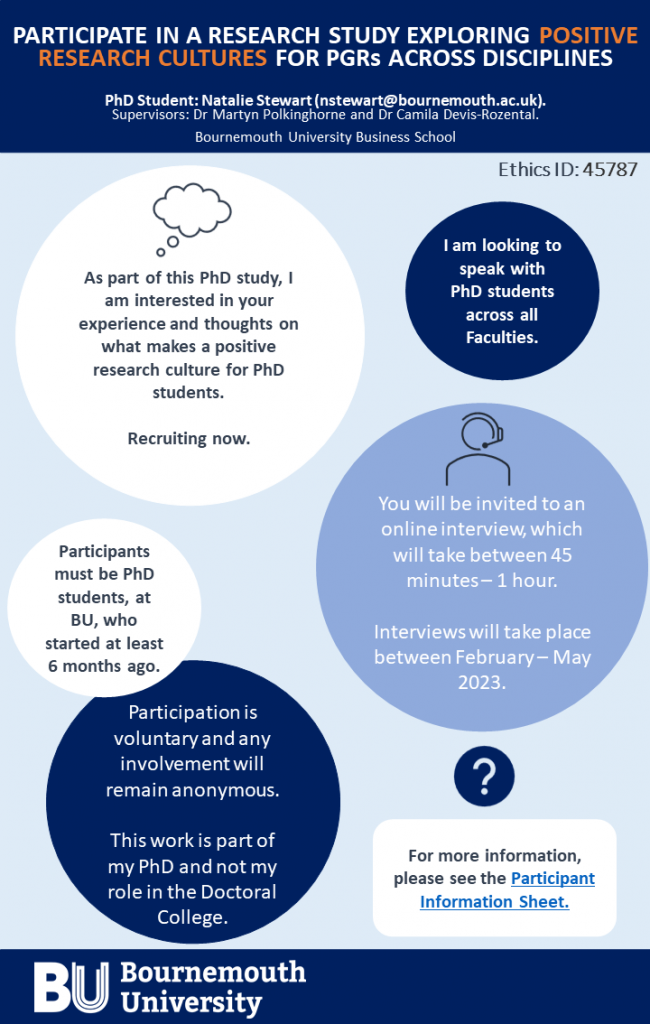

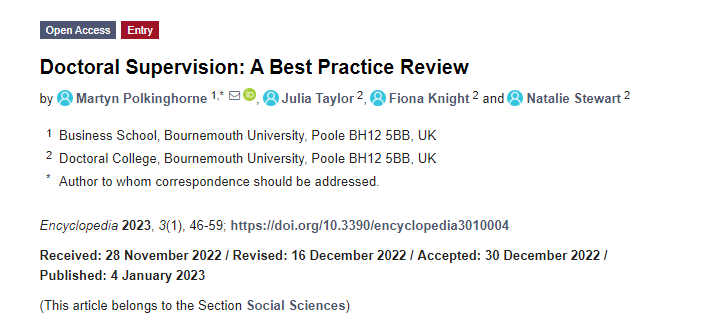





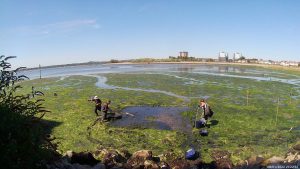
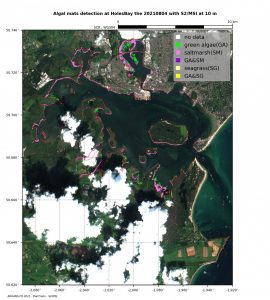











 Read and sign up to BU’s Policy Influence Digest
Read and sign up to BU’s Policy Influence Digest Upcoming opportunities for PGRs – collaborate externally
Upcoming opportunities for PGRs – collaborate externally BU involved in new MRF dissemination grant
BU involved in new MRF dissemination grant New COVID-19 publication
New COVID-19 publication MSCA Postdoctoral Fellowships 2024
MSCA Postdoctoral Fellowships 2024 Horizon Europe News – December 2023
Horizon Europe News – December 2023